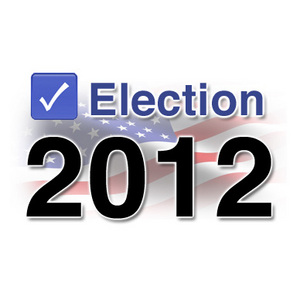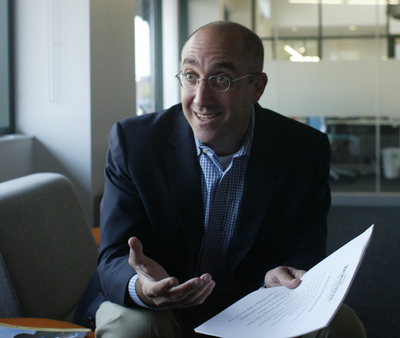University of Michigan regent candidates say college cost, student debt key issues in 2012 race
The two people who get elected to the University of Michigan Board of Regents in November will have the power to affect one of the hot-button issues of this election cycle: the cost of college.
When President Barack Obama visited Ann Arbor in January, he chastised colleges for "skyrocketing" tuition and told schools, "You can’t assume that you’ll just jack up tuition every single year."
The two Republican and two Democrat candidates for the two open regents seats —which will be vacated by Olivia Maynard and S. Martin Taylor— all agree that the financial burden on college students is too heavy, but each has a unique way of approaching the problem.
AnnArbor.com discussed rising college costs with Democrats Mark Bernstein of Ann Arbor and Shauna Ryder Diggs of Detroit and GOP candidates Robert Steele of Ypsilanti and Dan Horning of Grand Haven.
Horning, an attorney, is a former U-M regent who served from 1995 to 2002. Diggs is a dermatologist and the daughter-in-law of Taylor, the current regent whose term is expiring. Bernstein is a lawyer and currently serves on the Michigan Civil Rights Commission. Steele is a cardiologist at Michigan Heart P.C. and a former GOP candidate for Congress. Each candidate attended college at U-M.
The two candidates elected to the board will serve eight-year terms.
AnnArbor.com conducted an individual Q and A with each candidate, posing the same questions for each. Here's what they had to say:

Steele: I don’t think the state needs to worry about increasing dramatically their investment at U-M. In today's dollars, U-M has received tens of billions of dollars which they have turned into the $7.8 billion endowment. The other state universities don’t have that. Now, I’m not for cutting the university’s funding anymore, but these pressures for the mid-level universities without the endowment are going to become outrageous in the next 10 years.
All our young people are leaving [the state]. The state needs a better return on investment for the 150 years' worth of of venture capital, to help keep our best and brightest here. ... Forty percent of the undergraduates in the College of Literature, Science and Art are from out of state now; that’s too many. We have thousands of highly qualified Michigan high school graduates that are not accepted at the university, who leave the state and never return.
Bernstein: This is about priorities, and if we want to maintain excellence and affordability at our great public universities, the state needs to make a significant, meaningful investment in higher education. Having said that, I think the university cannot expect increases in state appropriations.
Horning: The state should be investing more, I would lobby for that. Unfortunately, asking and receiving are two different things, and I doubt very seriously that we'll get back to the appropriation levels we had a decade ago. ... That ship has sailed.
We're letting too many out-of-state students in. ... The focus on recruiting out-of-state students has reached its tipping point and it's at the detriment of our qualified in-state students.
Diggs: Right now the state is in financial trouble; everyone is in financial trouble. When that happens, everyone tends to start dropping what they give, when in fact education, in my opinion, is still the best investment that the state can make toward our future economy. ... Whenever you budget, you’re making choices, and to chose to decrease university funding, that’s a choice we’re making about the kind of people we're going to turn out into the job market.
On the role of a regent:

Mark Bernstein
MLive photo
Steele: The regents set the policy, they hire the executive to execute the policy. The policies are the regents’ policies, not the executives’. The board’s fiduciary duty is to set policy, spend the money, hire the executive to execute policy and guide the executive.
Bernstein: The regents play a central role in representing the people of this state. ... This is a public institution that requires a board that is elected by the public and who are accountable to the public. It is essential that U-M have regents who are comfortable in their appreciation that there are multiple stakeholders at the university and they need to do a good job of balancing the interests of all those stakeholders.
Horning: The role of a regent should be a global one. It's the most important job of the board [to hire the executive]. I think the board needs to step out of the way and let the president and his or her administration run the policy of the administration, [and not] micromanage.
Diggs: Their basic requirements are to hire the president of the university and manage the budget. It's also a leadership role, so deciding what the basic tenets that the university will try to follow are, and then being an advocate for the university system.
On the importance of transparency and accessibility:
Steele: I plan on changing the notion of access to the regents dramatically by having open office ours across the state [twice a month]. I would not be against having some sort of access - not free-for-all access - to the committee meetings. When you have a university that is gobbling up land and taking it off the tax rolls and then operating in complete secrecy, I think there could be more transparency there.
Bernstein: [On the Civil Rights Commission] we are committed to complying with the Open Meetings Act even when it's uncomfortable. ... I appreciate that there are moments when highly sensitive topics need to be discussed in a way that respects privacy. But sunshine is the best disinfectant, so I am predisposed to err on the side of openness.
Horning: I was always accessible. There is a telephone and there's email. Some candidates talk about having office hours as a regent, my office hours are 24/7. My phone and my email never were turned off. As an elected official there is transparency that is 100 percent required. There are certain personnel issues ... that can be dealt with legally behind closed doors, I would never violate that.

Dan Horning
Grand Rapids Press
Diggs: I feel as if the board is transparent. In any organization there has got to be closed meetings in addition to the open. I can't see how a business can really operate with sensitive issues without some element of a closed meeting. If there's a closed meeting, everyone knows that it's occurring.
On whether they would have voted to allow graduate student research assistants to vote on unionization. The existing board voted 6-2 in 2011 to allow unionization:
Steele: I would have been on the side of 19 of the 20 deans and the president of the university and the 1981 Michigan security ruling. I think the 19 of the 20 deans of the university have a very good feel for the fact that they are research assistants applying and interviewed and picked by a specific professor to assist in certain body of research.
Bernstein: The matter regarding GSRAs is a function of definition. If they're considered to be students then they cannot unionize and they shouldn't unionize under state law. If they're considered to be employees then they have a right to vote as a body to unionize. My opinion is that those categories here are not mutually exclusive, you can be both an employee and a student. U-M treats them as employees.
I remember many years ago the debate about the organizing of [graduate student lecturers] and the same arguments were made that the sky was falling, this institution would plummet in its stature, it would forever destroy the relationship between faculty and the [graduate student lecturers] and none of that has occurred. This would be a revenue neutral development for the university.
Horning: I would have been a strong 'no' vote. These are students, they're not employees and I think you're driving down a slippery path to start going down that road. The student athletes of U-M, the football team's got 85 scholarship football players. Are they going to decide one day that since the receive a stipend for housing that they should be considered employees and not students and they want to form a union and collectively bargain? That's ridiculous.

Rob Steele
Ryan J. Stanton | AnnArbor.com
Diggs: People have the right to organize. From my perspective they're employees. When I was at the university I was a member of the Health Officers Association because I was a medical resident and ... I certainly felt like an employee. I was receiving a check that said U-M on it each check period. And that organization represented us, negotiated our salaries and our benefits, which I certainly couldn't do ... as someone with no power, no knowledge, coming from the outside.
On whether they would have voted for or against a 2.8 percent tuition increase this year, which the current Board of Regents passed in a split vote in June:
Steele: I would be for a tuition freeze until we analyze the budget, [and] analyze the whole cost structure and look at the future of education and what we’re going to be able to count on.
Bernstein: I would have voted against that tuition increase and I will continue to vote against tuition increases if I believe that the university is not thinking about this in a thoughtful, creative way to control skyrocketing tuition and crushing student debt. This is a model that is unsustainable and it's going to require everybody taking a stand against it.
U-M should make a promise to never increase net tuition for students [from households earning $150,000 or less].
Horning: I voted for tuition increases while I was on the board [from 1995 to 2002], and they were justified. We were in a time of tremendous physical growth on campus. ... I would have voted no this year, based on the circumstances of where we are financially in the state and the job market. We need to find ways to reduce tuition and not increase it, at all costs.
We have $8 billion in the bank in the form of the endowment and we've raised tuition every year ... one of the things that's part of my platform is let's have an immediate five-year freeze. ... If the state Legislature voted every year to increase your income taxes every year to balance the budget, we'd vote them out of office.
Diggs: I don't know. I don't know all the numbers and all the data they had to look at. I think you always have to look at the issues. It depends on what money they have and what money they don't; 2.8 percent is not huge but I really think they need hold costs or decrease costs.
On the cost of U-M and limiting ballooning student debt, which in 2011 reached $24,850 for resident undergraduates at U-M:

Shauna Ryder Diggs
Steele: Tuition is skyrocketing. ... I am going to recommend the [principal of the] endowment be used as the bank, as the source of loans for students at the university.This this will ... make the university stand behind their product. It should be their most conservative investment. [Also] science, technology, engineering and math graduates who stay in Michigan for five years will enter a tuition refund program that’s funded by U-M, not the taxpayers. It’s a return on investment from the state for the tens of billions of dollars in state appropriations over the past 150 years that led to the $7.8 billion endowment. That small part would be from the distribution of the endowment, not the principal, and it would then be earmarked to help recruit these kids to stay in the state.
Another thing that I will strongly push for is better utilization of the $4.5 billion physical plant during the spring and summer semesters. Four months out of 12 most of the physical plant is unused. The fastest way that we can improve the financial performance of the university and put downward pressure on tuition is to have more students use the same facilities throughout the course of the year. I would encourage that by telling students that if you get a four-year degree in less than four years by using the spring and semesters, those spring and summer semesters will come with a tuition break, they will be cheaper for you.
Bernstein: [Student debt] has profound negative consequences for this university and for our state. We can do better and I have very specific ideas about how to make college more affordable. (One is) variable credit pricing, which essentially involves offering lower tuition, lower credit costs, during low-peak class time. You walk across this campus in the morning and it's like you're walking across the moon. [This would] make college more affordable, increase facility utilization rates and it increases faculty utilization rates and it generates revenue. (Two) Go Blue Bonds would essentially pass along Michigan's low cost of debt, which is 2.3 percent, to students in the form of student loans. If you just apply a 3 percent interest rate, which is still significantly lower than the 3.4 percent Stafford Loan interest rate, that will save a typical Michigan student $4,800.
A lot of candidates for regent will say, because it's very tempting and easy, let's use this $7.8 billion endowment to [curb costs]. The problem with that is it's probably illegal because the endowment is made up of almost 7,000 small funds that are restricted by the intention of the donor. Therefore you can't just tap the endowment, as tempting as that might be. But you can apply a 5 percent access allocation on all new money raised by the university and a 10 percent access allocation on all capital increases on the foundation assets. In doing so, you're not raiding the endowment, you're just harnessing it. Doing this would raise over $100 million a year to go toward financial aid.
Horning: We're at a real tipping point, that I'm not sure the model for funding higher education in Michigan is sustainable in the future ... How long can we sustain this budgeting model ... where the general consensus is that 'OK, inflation rose X, consumer cost for student housing and food rose X, [so tuition will rise X too]'? I don't have the answer but I'm certain that that model cannot go on forever.
The other thing is that the university reduced the flow of interest from the endowment a couple of years ago from 5 percent to 4.5 percent, yet at a time when there's a record growth of the endowment. I look at the endowment as a rainy day fund and it's not only raining out, it's pouring out. ... That needs to be revisited. It is difficult for me as a graduate, a taxpayer and a donor to U-M to read about how the endowment has reached record strength, record levels and record investment performance, and at the same time the regents are voting to reduce the amount that's spun-off on an interest basis to offset the costs.
Diggs: I don't think U-M is too expensive, I think the cost of education and the cost of everything is going up. Regardless of what the cost is, at some point when it starts to affect behavior, affect our student population or affect our families adversely, and that's when we have to pay attention. I think we're at that point. I actually think [U-M resident student debt] is on the lower side. I know a lot of people who graduate from college with much more debt than $25,000 after college, and I think that makes it difficult to start a career, start a new life.
There are things that we can do to try to make it better for students and for families. Most financial packages, what that really means is loans. We have to make that mean more grant money than it does currently. ... We can try to increase the grant money by increasing the amount of money we raise from individuals. Right now Michigan has a very high endowment, but much of that money is restricted to specific things. We should really try to encourage people to donate to a fund that is specifically for tuition supplementation for students. If it's explained the right way, if there's a lot of leadership among the regents, then we can encourage people to do that.
Loan payments should be a percentage of the income [and] if the universities band together and say this is something we need for our students, then it can happen.
Other candidates
Six third party candidates will also appear on the Nov. 6 ballot. James Hudler of Chelsea and Gregory Stempfle of Ferndale are running as Libertarians. Dexter resident Eric Borregard is running with the Green Party. From the U.S. Taxpayers Party, Joe Sanger of Lansing and Gerald Van Sickle of Wellston, are also running. Ann Arborite Nikki Mattison is running for the National Law Party.
None appear to have launched a significant campaign for the position.
Kellie Woodhouse covers higher education for AnnArbor.com. Reach her at kelliewoodhouse@annarbor.com or 734-623-4602 and follow her on twitter.


Comments
Bob Areddy
Mon, Nov 5, 2012 : 6:48 p.m.
Thanks for no interview of the other candidates. Well done.
Linda Peck
Mon, Oct 22, 2012 : 2:13 p.m.
Thank you, Ms Woodhouse, for posting this information. It is very useful.
bhall
Sun, Oct 21, 2012 : 5:38 p.m.
Third sentence should read: "Democratic candidates." Saying "Democrat candidate" is some strange right-wing epithet.
Bob Areddy
Mon, Nov 5, 2012 : 6:52 p.m.
Is a person a "Democrat" or a "Democratic"? Obviously "Democrat". Her terminology is correct.
Billy Bob Schwartz
Mon, Oct 22, 2012 : 1:28 a.m.
I agree. Either that, or refer to the others as Republic candidates. Seems pretty biased, to me.